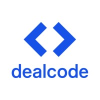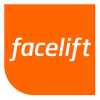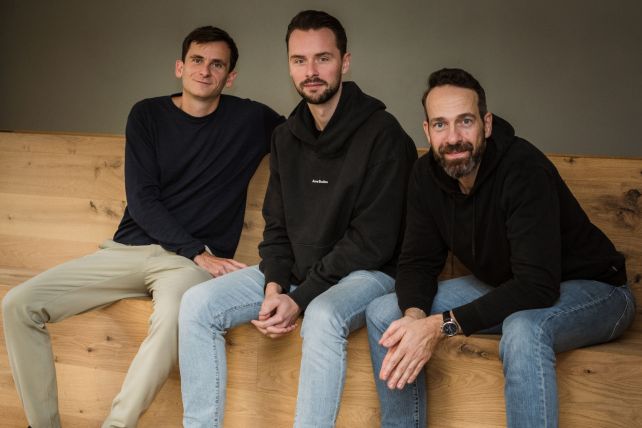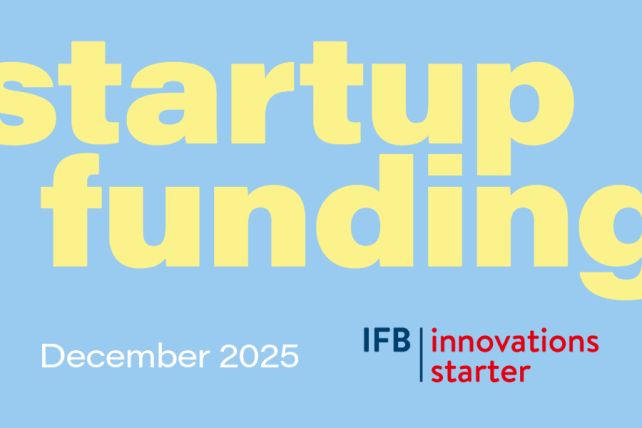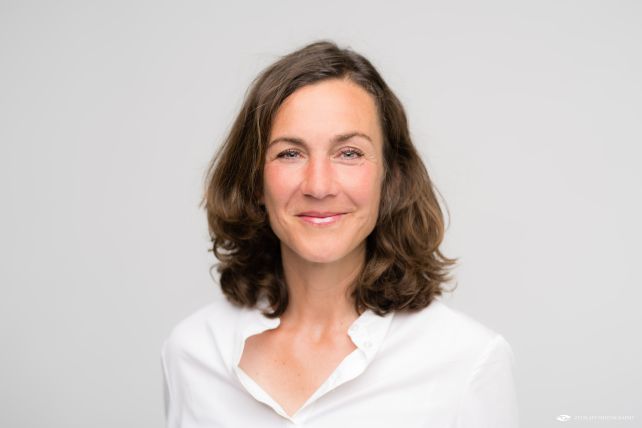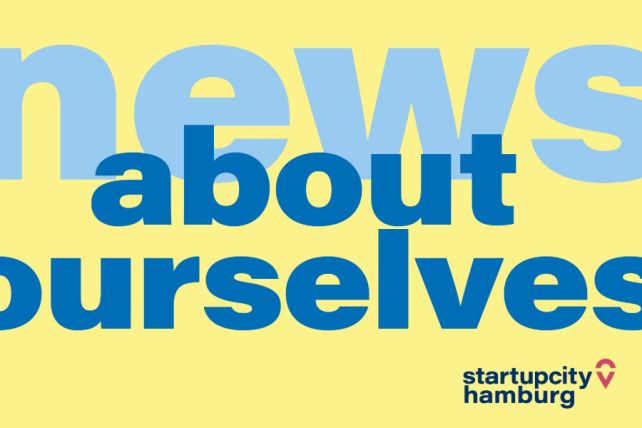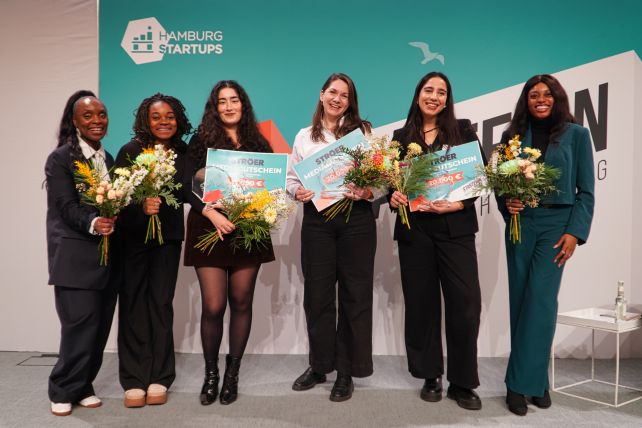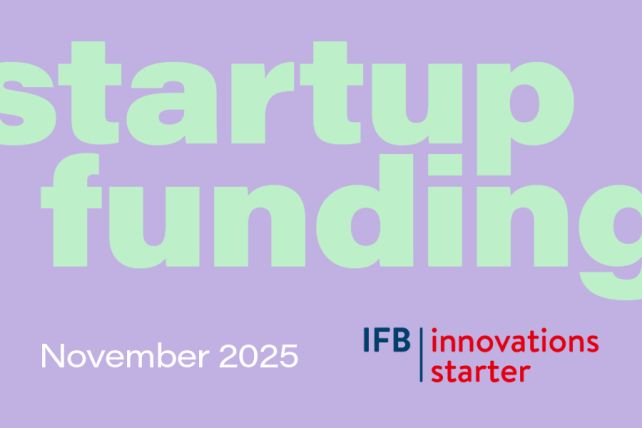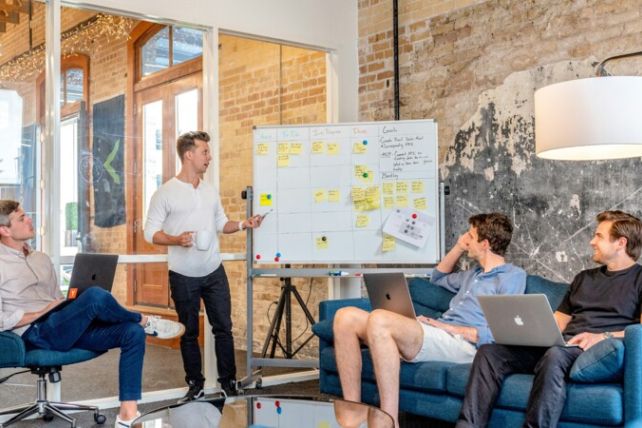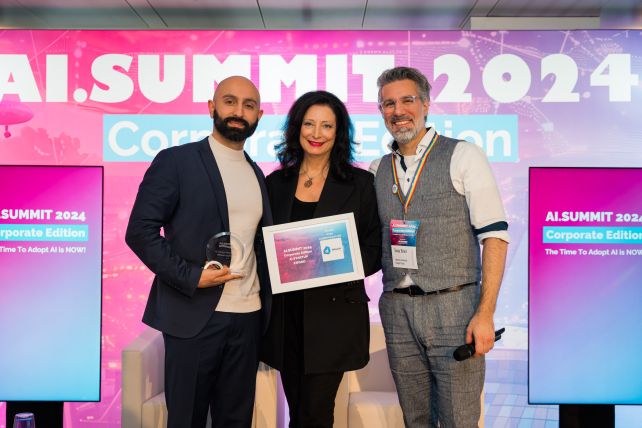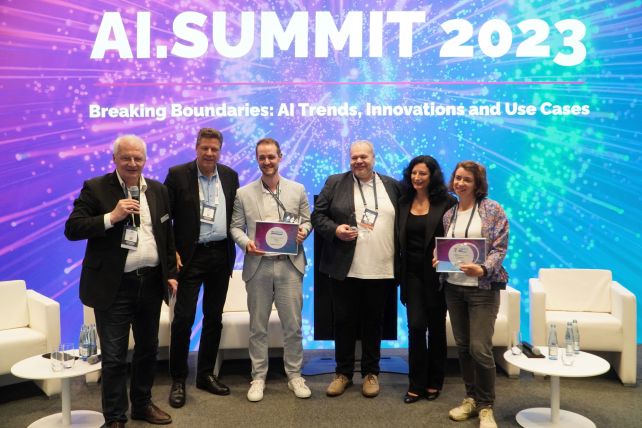Dealcode ensures more sales success with artificial intelligence
Sales is a tedious business, often involving time-consuming and frustrating research and routine tasks. The Hamburg-based startup Dealcode lets AI agents, which are already being used by around 100 B2B customers, take on a large part of these tasks. Behind this success are two founders with many years of startup experience.

Facelift is a startup pioneer
One of the great success stories of the Hamburg startup scene bears the name Facelift. Founded in 2011 by Benjamin Schroeter and Teja Töpfer, the company was one of the first to recognise the importance of social media for corporate communications. At the time, Facebook was the dominant platform, resulting in the company name and the original claim ‘100% Facebook’. Alexander Weltzsch was one of the first team members at Facelift. The business administration graduate with IT expertise had previously earned his living as a freelance digital marketing consultant and joined the sales department of the up-and-coming company in early 2012. Over the years, he rose to the position of Chief Revenue Officer. Dennis Hilger joined the team in 2013 after completing his business studies at Helmut Schmidt University with a master’s degree.
At the end of 2016, the media company DuMont acquired 75% of Facelift's shares. The clients and orders continued to grow. In 2019, when Dennis had just been promoted to Head of Sales, he and Alexander became increasingly aware of the challenges faced by large sales teams. Facelift's already consisted of around 50 people, but other companies had much larger departments in this area. Alexander began to pay more attention to artificial intelligence (AI), which at that time only had a fraction of its current capabilities.

Dealcode was quickly successful
He sought expert advice from IBM and developed a concept for analysing sales data using AI. He involved Dennis in his deliberations, which led to the founding of his own startup. When Daniel Oliver Augsten replaced founder Benjamin Schroeter as CEO of Facelift in 2021, the time had come for Alexander and Dennis: they founded Dealcode in April and were quickly able to win over their former boss as a business angel, as well as Facelift as one of their first customers. The young company announced its first round of financing totalling 1 million euros back in December 2021. The early-stage investor APX from Berlin and IFB Innovationsstarter GmbH with its InnoRampUp funding programme were also involved. A seed financing round with a volume of around 1.8 million euros followed in May 2023.
Dealcode was launched with the idea of using machine learning algorithms to automatically show sales teams how to close contracts faster and with higher quality and to increase the success rate of sales teams. The software analysed sales data from existing customer management systems based on more than 150 factors. From this, Dealcode identified patterns with the help of AI and made recommendations for action on this basis. The software-as-a-service solution helped the sales team to focus on the most promising deals, accelerate acquisitions and increase revenue. The prioritisation process was aided by an algorithm that calculated the probability of closing a deal from 1% to 99%.

Colleague AI agent
In principle, the basic concept has hardly changed since then, but thanks to technological advances in AI, Dealcode has been able to continuously refine and expand its offering over the past three years. Since mid-2023, AI agents have been used to further advance the automation of sales processes. They largely take over tasks such as identifying potential customers and their contacts, personalised appeal, creating offers or processing public tenders. This involves time-consuming research work on the one hand and repetitive routine tasks on the other. The AI agent is therefore not intended to replace the sales team, but to relieve them so that they can concentrate on the interpersonal level, which is still the decisive factor even in the digital age.
Dealcode is not designed for the end customer business, so online shop operators are not part of the target group. Instead, the focus is on B2B sales and a wide range of industries. Companies from sectors such as mechanical engineering, manufacturing, health tech, logistics, media, IT and consulting are among the 100 or so customers that the team, which now has 30 members, supports. In addition to its headquarters in Hamburg, Dealcode also has an office in Berlin, but thanks to the possibility of remote working, the employees are actually scattered as far afield as Spain and beyond. Alexander Weltzsch summarises the challenges posed by the growth of his startup as follows: ‘The transition from a small, focused team to a larger organisation brings with it the need to define clear responsibilities and processes without losing the flexibility and innovative strength of a startup. It's a balance between structure and agility that we have to constantly rebalance.’

From Hamburg to the USA and back
Dealcode is increasingly looking towards internationalisation, including the USA. In the summer of 2024, Alexander travelled to New York and Silicon Valley to make valuable contacts and be inspired by the startup scene there. He was impressed by the number and variety of networking events and the willingness to share knowledge and support each other. In addition, the readyness to simply try something out is much more pronounced there than in Germany. This also applies similarly to investors, who, if they are convinced of something, are more likely to see the opportunities than the risks.
One form of networking that Alexander got to know in San Francisco is the Founders Running Club. It now exists in 20 cities on three continents and, thanks in part to Alexander's commitment, also in Hamburg since summer 2024. Every Saturday, running enthusiasts meet in front of the Leiszhalle, run two laps through the public garden of Planten un Blomen and then have a coffee together. If you're not so keen on running, you're welcome to join then too - after all, the focus is on getting to know each other rather than the sport. The Founders Running Club can help to further improve networking in the Hamburg ecosystem, although Alexander is already largely positive about the status quo:


